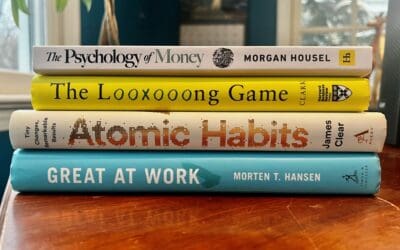For those of you familiar with my work, you’ve probably noticed that I seldom ever write in the first person for work. I try to write my content from a neutral stance so that it is informative without bias. For International Women’s Day, though, I decided to shift the narrative and write about something very close to my heart: the importance of women’s mental & physical health in the workplace.
I suffer from quite a few serious mental and physical health issues and have for many years. The severity of my health problems regularly interferes with my ability to work and I’m technically considered disabled. Despite that, I still work part-time on a flexible schedule with major accommodations. Due to my own circumstances, I’ve seen the good and the bad in various workplaces when it comes to how employers & fellow employees treat women with mental and/or physical health issues.
I’ve worked a lot of jobs in a lot of industries before I found my home at Graziani Multimedia. Unfortunately, there was a common current despite the vast differences in the industries I’ve worked in: the mental and physical health of women were often belittled. Many times, even among other women, ladies with mental health issues were labeled “crazy” or “hormonal,” and physical health issues were tied to their weight, eating habits, and accusations of laziness.
A current example
An example of this is something one of my close friends is currently experiencing. Last week, she started a job in the healthcare industry. The woman that just started with her has been making some incredibly disparaging comments towards her regarding her health, weight, and eating habits under the guise of “offering advice”. My friend isn’t obese or unhealthy; she’s on medication for a thyroid disorder and follows the meal plan given to her by her doctor. Lest it be said, some random woman making daily comments about her weight has not been good for her mental health. Despite my friend repeatedly asking this woman to stop making these unsolicited remarks, she hasn’t, and even went so far to try to make my friend “a healthy lunch” and take her blood pressure. Whether this woman honestly believes she’s doing a good deed is moot. It is harassment. End of story. Given they both just started the job, my friend feels concerned about making waves by reporting it to her supervisor. She doesn’t want to be seen as a complainer or troublemaker, so instead, she has been dealing with this harassment for the past week. I’ve been absolutely furious over this and have offered to go to her employer on her behalf, but I won’t because I understand all too well how it could possibly reflect on her.
This story is sadly common for women, especially for women like my friend in her 20s or for women in middle-age. They want to report what’s going on, but they’re afraid of being seen as a nuisance. This seems to be even more true for women of color and transwomen— despite being common targets for workplace harassment, they’re afraid to report it due to the indirect repercussions they may receive or that they simply won’t be believed.
Where Sexism and Ageism intersect
I recently turned 35, but as I’ve said, I’ve suffered from chronic mental & physical health issues for many years. Until I hit my 30s, I was seldom ever taken seriously in the workplace regarding my health issues. Despite the fact that I have a 700+ page medical record and I’ve always been transparent about my mental and physical health struggles, I’ve been branded “crazy”, “hormonal”, “lazy”, and “a hypochondriac” more times than I can count. There was one point at a past job where I was even accused of being on drugs, which I found hysterical considering I don’t even drink alcohol, let alone do drugs. Then, I turned 30, and all of a sudden people actually acknowledged what I had been telling them for years. Why is that? Did firmly being out of “young adult” territory really change my credibility? I was the same person at 29 that I was at 30, but that one year apparently made all the difference in the world.
There is about a 20-year span in which it seems a woman is actually taken seriously in the working world, and that’s between the ages of 30 and 50. Under 30? Your issues are because you have PMS or your period. Over 50? Your issues are because you’re going through menopause. Under 30? You’re too young to have viable experience for a career. Over 50? You’re too old to keep up with the times. Under 30? You’re just lazy and don’t have any physical issues to slow your work. Over 50? You’re too worn out and decrepit to keep up with the younger workers. Under 30? You won’t stay with the company because you’ll want to start a family. Over 50? You won’t stay with the company because you’ll want to retire and spend time with your grandkids.
I’m paraphrasing of course, but I’ve never heard anything along these lines in reference to men. Only women, even among other women. This strange and discouraging mix of ageism and sexism is prolific in the working world, regardless of the industry.
Institutionalized sexism and ignorance regarding women’s health are the root of the problem.
A lot of how women are perceived in the workplace can be attributed to institutionalized sexism and a lack of understanding of women’s mental & physical health. Remember some of the sexist arguments regarding Hillary Clinton running for President? Completely aside from her personal or political life, people were arguing a woman couldn’t be President because they’re too hormonal, weak, and moody. She’s an older lady, so she must be menopausal and will launch nukes. Just… what? Do people understand what menopause is? It doesn’t suddenly turn you into a warmonger. Even young children (no doubt products of their environments) hold these kinds of attitudes. A woman can’t be President because she’s not smart or stable enough.
When Sally Ride was the first American woman to go to space, NASA asked her if 100 tampons were enough for a one week flight and sent along a makeup kit. Before taking flight, the engineers asked her if she cried under pressure or if going to space would affect her reproductive organs, things they absolutely never asked male astronauts. “They didn’t care about how well-prepared I was to operate the arm or deploy communications satellites,” Ride later told an interviewer.
Some of the smartest minds in the world honestly thought that Sally Ride would need 100 tampons for a week. They thought this highly educated, highly trained woman would buckle and cry under pressure because she was a girl. It just goes to show that ignorance surrounding women’s health, both mental and physical, knows no bounds.
There was a space program for women astronauts before Sally Ride made history in 1983. It was cancelled in 1962 because of sexism. John Glenn’s testimony at the hearing as to why it was cancelled sums it up: “The men go off and fight the wars and fly the airplanes….The fact that women are not in this field is a fact of our social order.” 13 women were trained and qualified to be astronauts, but thanks to institutionalized sexism, never got to fly.
A study from the Journal of Applied Social Psychology in 2019 demonstrated a marked correlation between women’s mental health & sense of belonging and institutionalized sexism. The study states: “The present study represents the first confirmatory (preregistered) investigation of the associations between workplace sexism, sense of belonging, mental health, and job satisfaction. Consistent with predictions, organizational and interpersonal sexism were independent negative predictors of sense of belonging and mental health problems. In addition, organizational sexism was an independent negative predictor of job satisfaction.”
A study from 1986 includes the following: “A major source of work-related stress for women sterns from organization of the workplace. There can be no separation of concerns about organization of the workplace from concerns about social relations, social roles, and stereotypes because these factors all impinge on the health of women.”
Institutionalized sexism and ignorance regarding women’s health are intermingled. They’re both contributing factors to not only perpetuating the problem but causing even more.
It isn’t just employers sweeping issues under the rug. Its employees adding fodder to the flame.
Whether people realize it or not, ignoring, mocking, or blurting out unsolicited advice regarding women’s mental and/or physical health issues essentially boils down to bullying and harassment. Over 70% of targets of workplace bullying become unemployed either by losing their jobs or by leaving voluntarily. Bullying also strongly impacts the mental health of the target and causes long-lasting negative effects regarding mental & physical health, productivity, and stress. Bullying & harassment themselves create a hostile work environment which (in addition to being illegal) causes a plethora of workplace issues on its own.
A hostile work environment is one of the few situations in which a person can quit a job and still receive unemployment benefits. It’s also possible for a business to be sued over a hostile work environment. By not providing education and resources regarding women’s mental & physical health and not properly disciplining employees ridiculing other employees, a company may very well be setting themselves up for a costly lawsuit. The stigma surrounding these issues must come to an end. Mental and physical health education in the workplace must become more mainstream. People need to learn how to treat their employees and co-workers with compassion and respect.
I am one of the most asocial introverts people will haphazardly come across. I do not like to socialize, I’m analytical to a fault, and I can be flat-out hostile when defending the people I care about. Nevertheless, I make it a point to be understanding and responsive to those around me because I never know what they may be dealing with. If I don’t understand something a person is going through, I educate myself on it. If I, being the hermetic cave goblin that I am, can be compassionate to the plights of others, I know everyone else can. Empathy is a learned trait and it’s about time people actually learn it.
The good news is more and more businesses are finally paying attention
When I met Tracy and first started with Graziani Multimedia in early 2019, I found a boss that treated me as more than just an employee or a number on a spreadsheet. I found someone that truly valued me, my skills, and my input. I found a fellow woman and mother who understood women’s mental & physical health, didn’t deride me for my issues and supported me. I found an ally. I’m so grateful for Tracy and Graziani Multimedia for not only taking a chance on me but going above and beyond to accommodate my needs.
Unilever, Johnson & Johnson, and Microsoft are some major companies that have been making strides in recent years regarding taking women’s health and mental health more seriously. “If you want a high-performing company, you need resilient, healthy employees,” said Unilever’s chief learning officer, Tim Munden. Microsoft offers a comprehensive employee assistance program to assist with mental and physical health issues. Johnson & Johnson has trained more than 350 employees in mental health first aid, provides extensive mental health benefits & resources for employees, and extends those benefits to the employees’ families, as well.
Deloitte has been a trailblazer regarding this particular subject. Jen Fischer, Deloitte’s Chief Wellbeing Officer, launched many programs that not only benefit Deloitte but can benefit all businesses. She launched Deloitte’s Mental Health at Work campaign that provides not only mental health first aid training, but also resources, information, and educational opportunities to improve employees’ mental, physical, and emotional health. Deloitte also partnered with ThriveGlobal to provide resources for businesses to promote mental & physical wellness and education within their own organizations.
Closing thoughts
I have a 14-year-old daughter, and a lot of my free time is spent thinking about how I can make the world a better place for her. Just as my mother, grandmother, and great-grandmother broke stigmas and barriers for me, I want to do the same for my daughter. My daughter has seen what I’ve endured due to my health problems, and I refuse to let her go through the same thing. I suppose that’s why I’m so passionate about this particular issue.
I don’t want my daughter to have to endure being ridiculed, disparaged, and ignored because she’s a young woman. She deserves to be understood, respected, and listened to, as do all women. I feel like many women working today also feel that way, and progress is slowly but surely being made. The first step to correcting a problem is to become aware of it, and it seems like finally, the issues women face regarding their mental & physical health in the workplace are being acknowledged.




